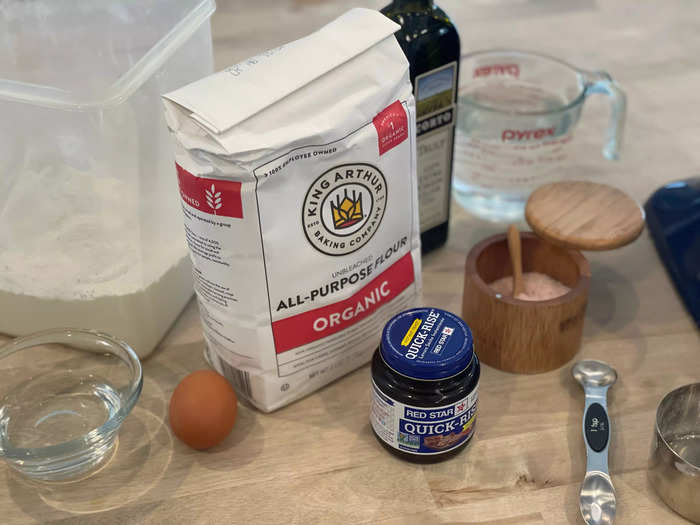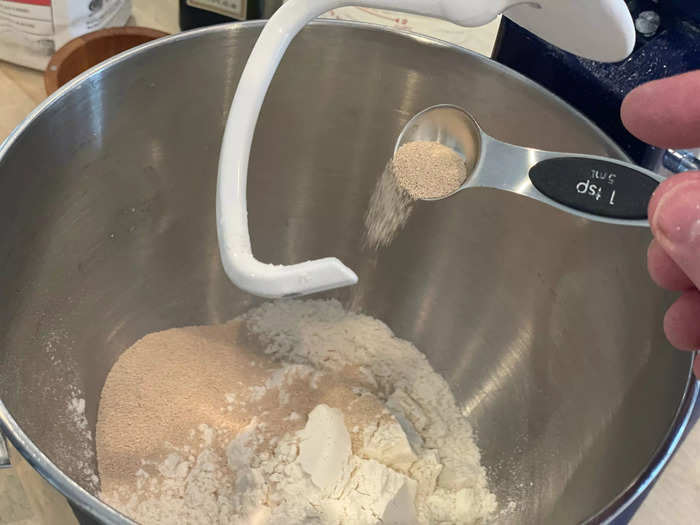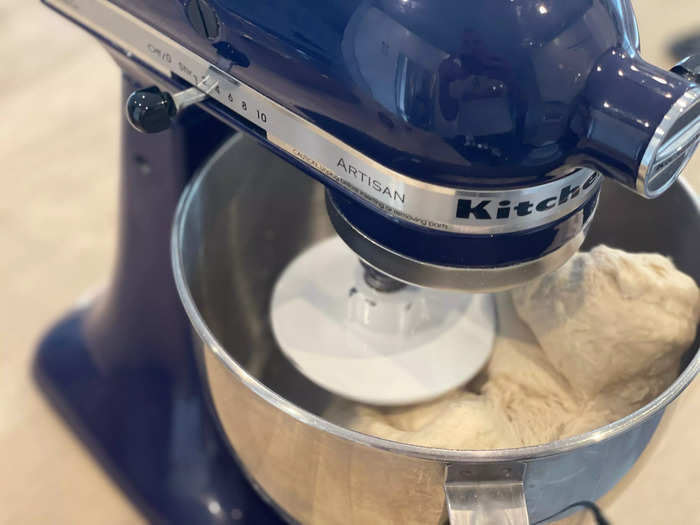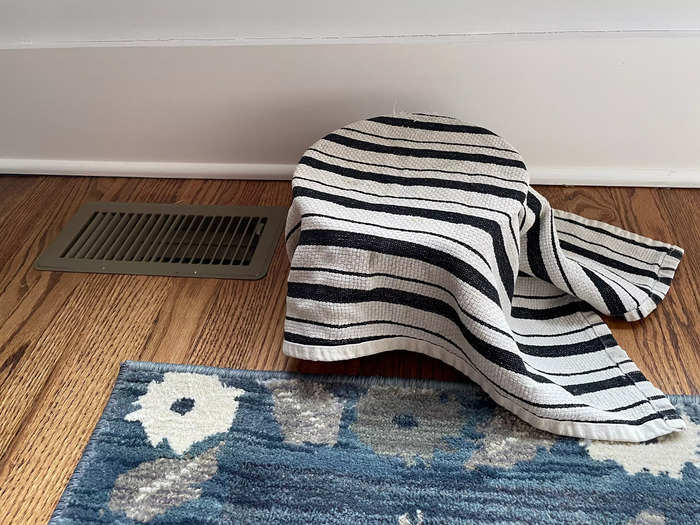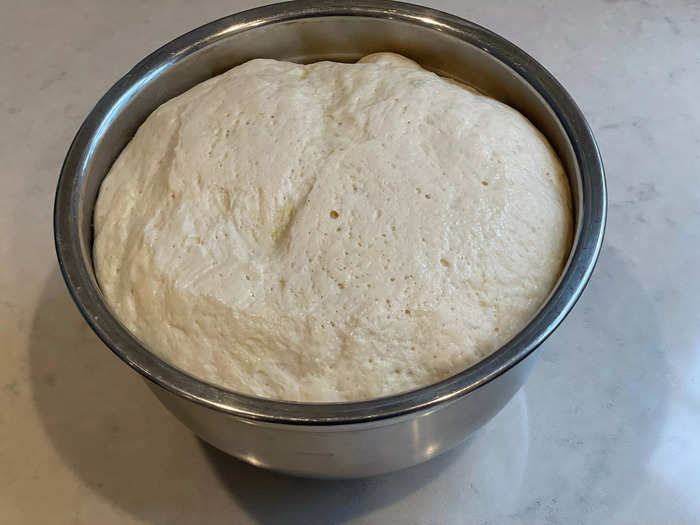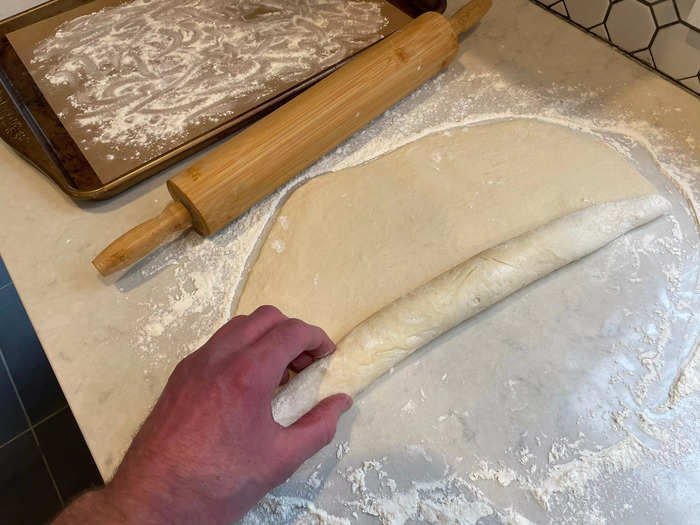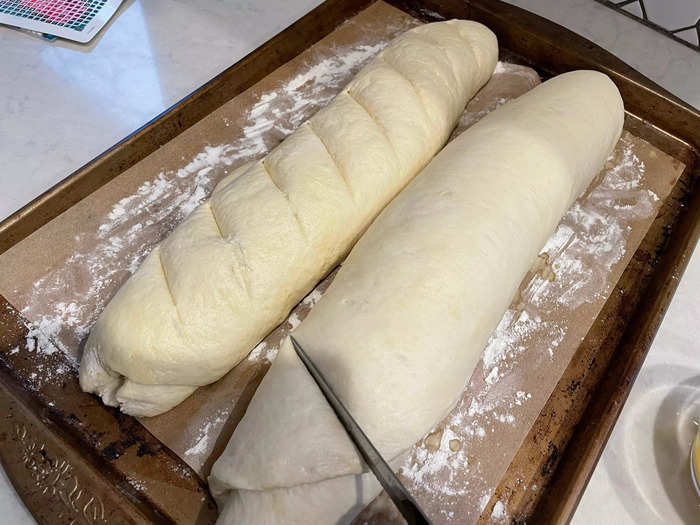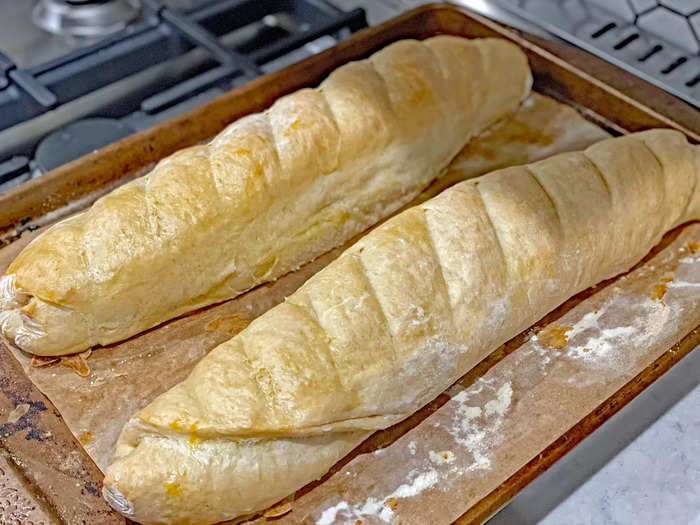If it isn't devoured right away, the bread will stay very fresh for two days. Steven John
- French baguettes are surprisingly easy to make and go well with so many meals.
- Not counting the optional egg wash, my family's recipe only calls for four ingredients.
If you can think of anything that's both as simple and as satisfying as French bread, I'm all ears.
Luckily, my family has been making foolproof baguettes for years that only call for four ingredients and an optional egg wash.
Here's our recipe.
Start by gathering the basic ingredients.
I usually keep flour, yeast, and salt in my pantry at all times. Steven John
My family's recipe mostly uses things I already have in my pantry on a regular basis.
For two baguettes, you'll need:
5 (generous) cups of all-purpose flour
5 teaspoons of active yeast
1 teaspoon of salt
2 cups of warm water
(optional) 1 egg + ¼ cup water for egg wash
As for the equipment, I like to use a stand mixer with a bread-hook attachment in addition to a large bowl and a cookie sheet.
Mix the dry ingredients.
I start with 2 cups of flour and add the rest later on. Steven John
Combine 2 cups of flour with the yeast and salt in a stand mixer, briefly turning it on to stir the dry ingredients together.
Form a base dough and gradually add all the flour.
Since I use a stand mixer with a bread hook, I don't end up having to knead the dough. Steven John
Pour 2 cups of warm water (around 110 degrees Fahrenheit is ideal) into the stand mixer and run it on low for one minute to form a sticky base dough.
Add the remaining 3 cups of flour to the mixer and run it on a low speed for about five minutes. A thicker, semi-sticky dough ball should form.
Then remove the dough from the mixer, form it into a ball, and place it into a greased bowl (I recommend using olive oil).
Let the dough rest for about an hour.
The dough rises best in a warm spot. Steven John
Cover the bowl with plastic wrap and a kitchen towel and place it somewhere warm for one hour.
I usually set my dough near a floor heating vent, but places like a closet with a water heater or even a warm bathroom also work well.
The dough should rise quite a bit.
You can press into the dough with your fingers to release the excess air. Steven John
When the dough has doubled in size, press the excess air from it with clean hands and roll it into two balls. Set these aside as you prep a cookie sheet with parchment paper and a dusting of flour.
You'll also want to prep a dry, smooth workspace on your counter with a heavy dusting of flour.
Flatten the dough balls out and roll them into long batons.
I roll the dough out into large ovals before shaping the bread. Steven John
Using a rolling pin, roll the dough balls out into flat, roughly ovular shapes — about 16-by-12 inches big and no more than ¼ inch thick.
Starting at one of the longer edges, roll the flattened dough into a long tube and pinch the ends shut.
Transfer to baguettes to a cookie sheet for another rest period.
If you're using an egg wash, brush it on before the second proof. Steven John
Place each dough tube on the prepared cookie sheet. If you're using the optional egg wash, combine the egg with ¼ cup of water in a small bowl. Lightly brush the mixture across both tubes of dough.
If you like crustier bread, I recommend using the egg wash. Without it, you'll get a softer baguette.
Cover the dough with plastic wrap and let it rest again for 20 minutes. In the meantime, preheat the oven to 375 F.
Slash the risen dough for looks and texture.
I like to make around 10 slices on the top of the dough. Steven John
Once the 20 minutes are up and the tubes have risen slightly, remove the plastic and diagonally slash the dough with a serrated knife about 10 times.
This is partially just for looks, but it also encourages the bread to expand while baking.
Bake, egg wash again, and rotate the pan in the oven.
I make sure to turn the pan around in the oven to evenly cook the bread. Steven John
Bake the bread for 20 minutes, do another egg wash, and return the dough to the oven with the pan rotated — if you're not using an egg wash, simply rotate the pan so all sides of the dough bake evenly.
Bake for another 15 minutes.
Remove the bread from the oven, get it off the cookie sheets, and enjoy.
If it isn't devoured right away, the bread will stay very fresh for two days. Steven John
When the bread is ready to come out, quickly transfer the baguettes from the cookie sheet to a cooling rack.
The baguettes stay fresh for two days, and I think the texture is still OK on the third.
You can also freeze baguettes if you want them to last longer. To thaw them out, heat your oven to 450 F, turn the heat off, and pop the frozen bread into the warmed oven for about 10 minutes.

